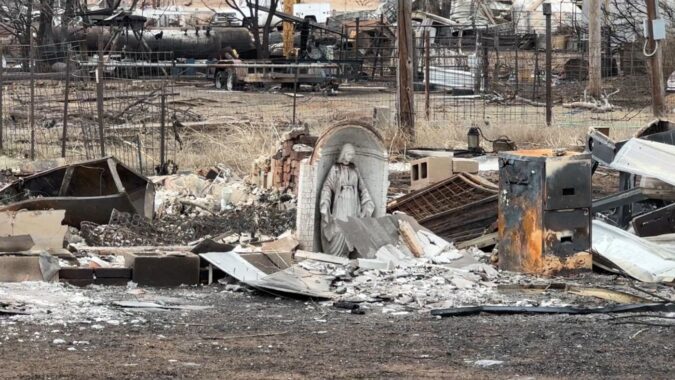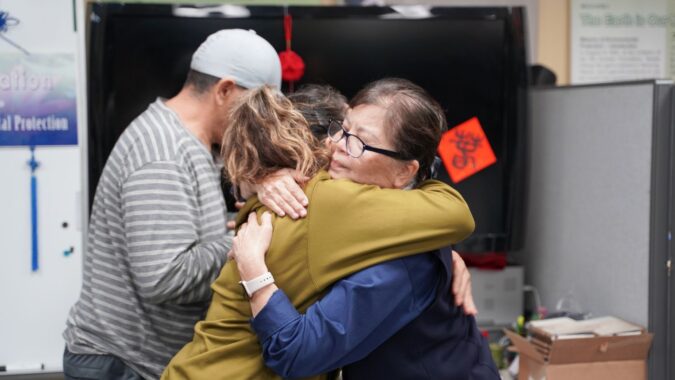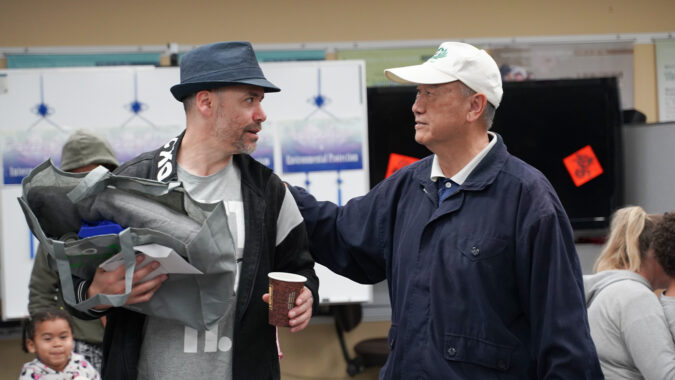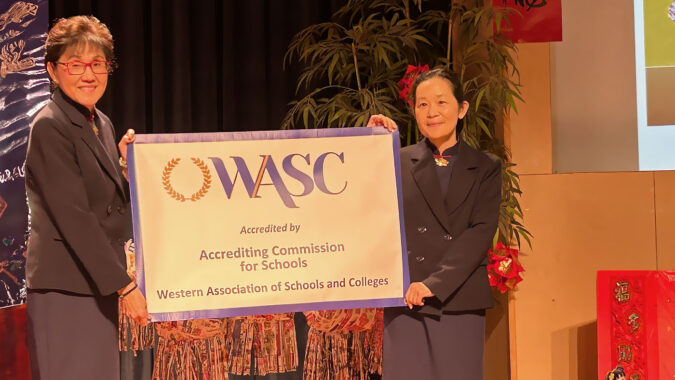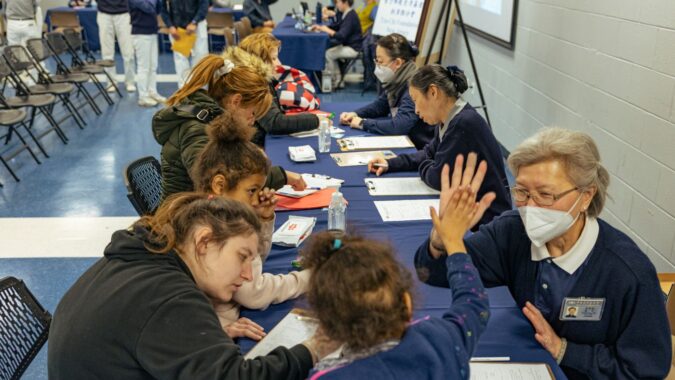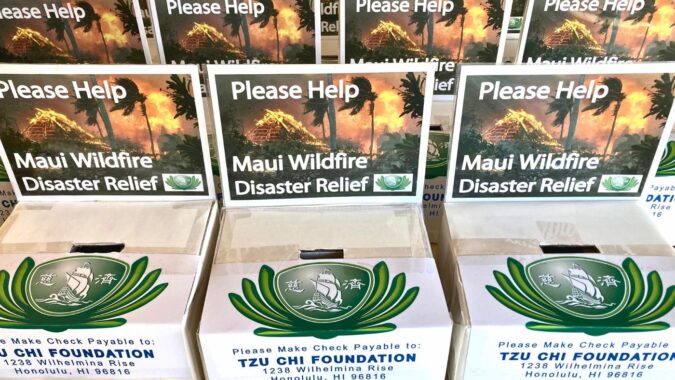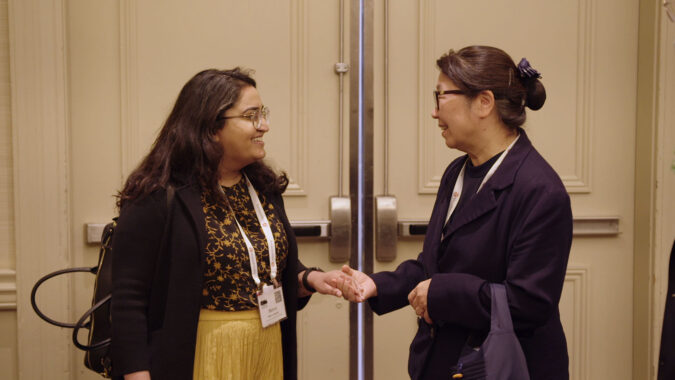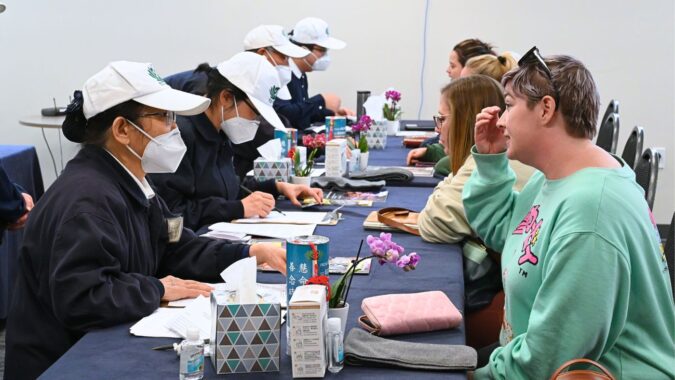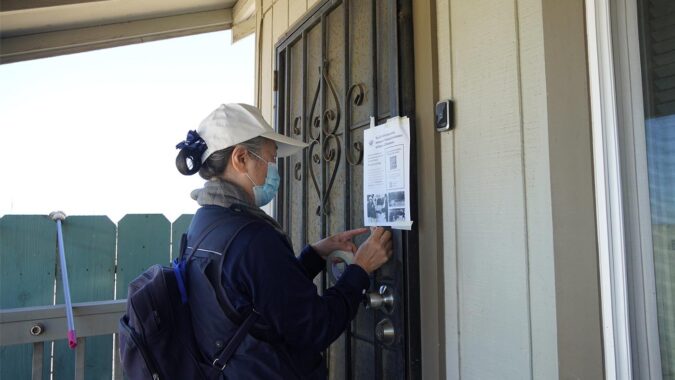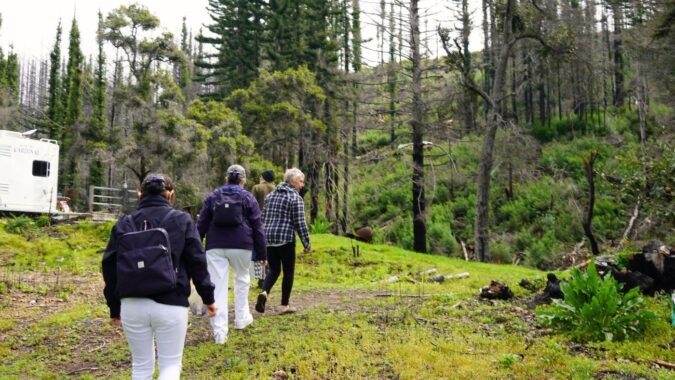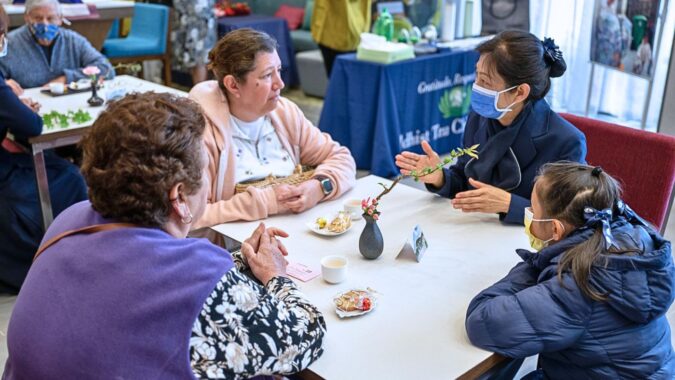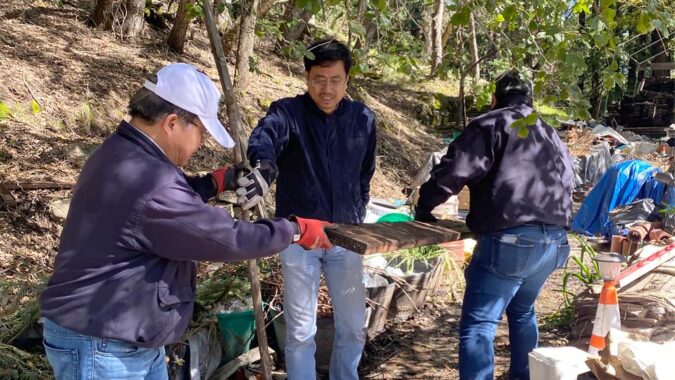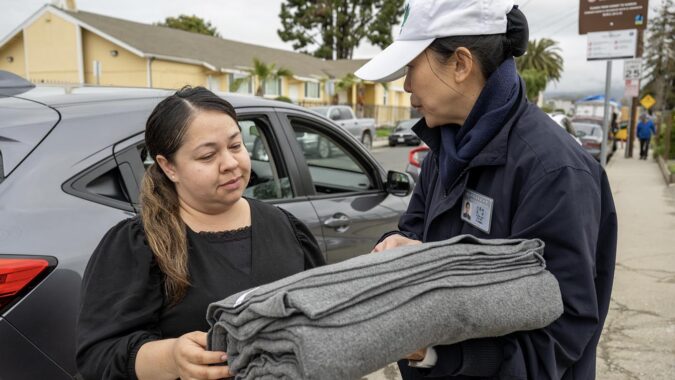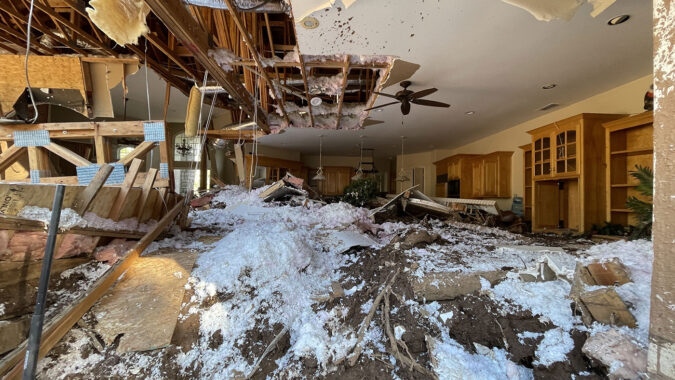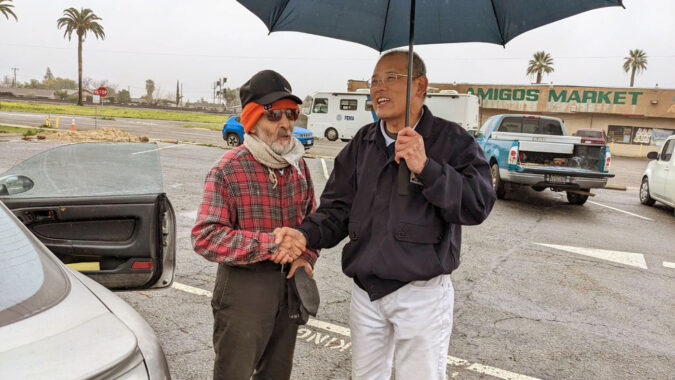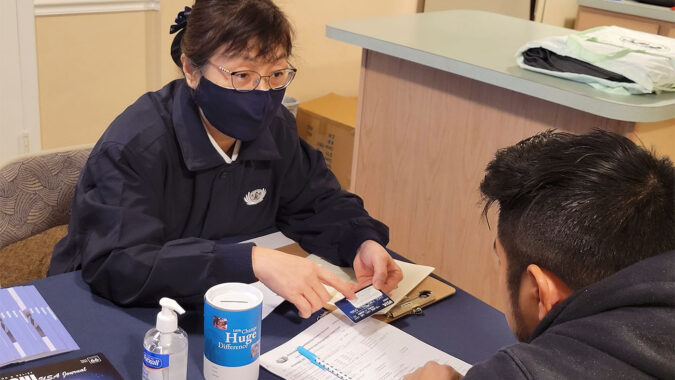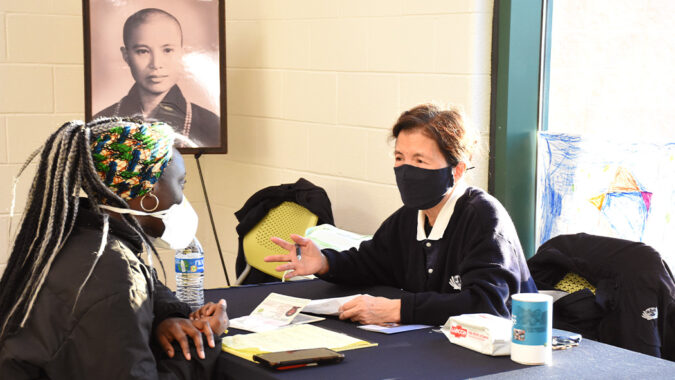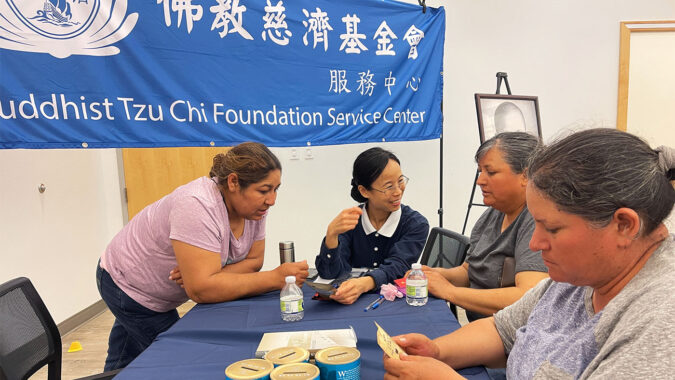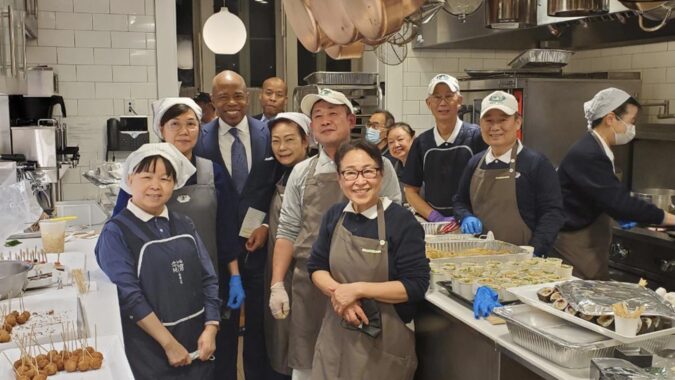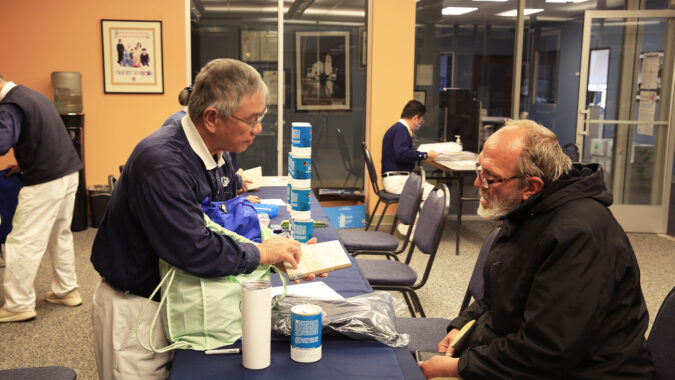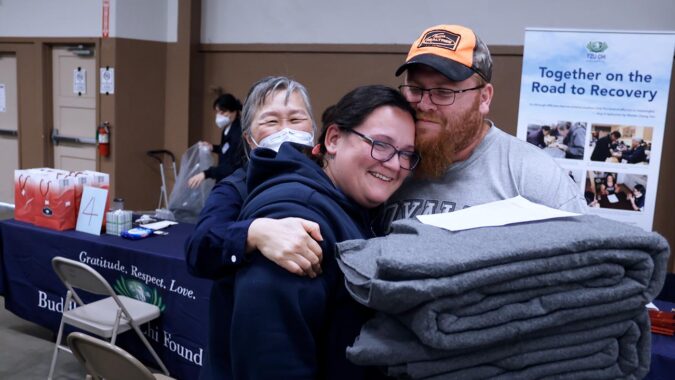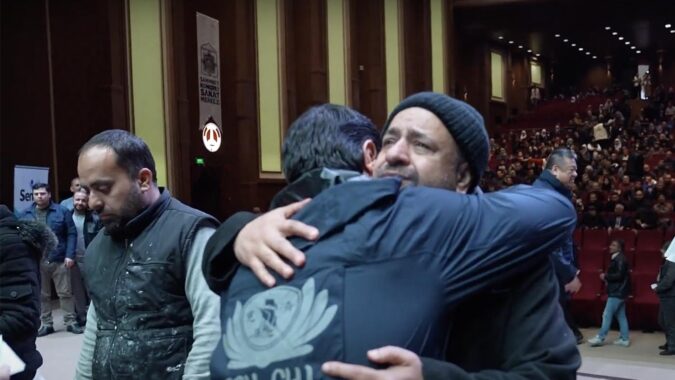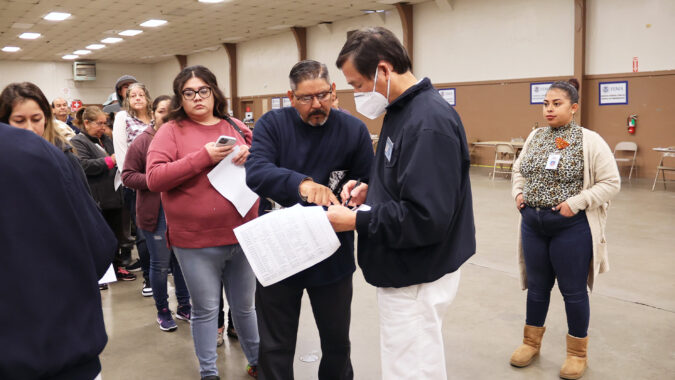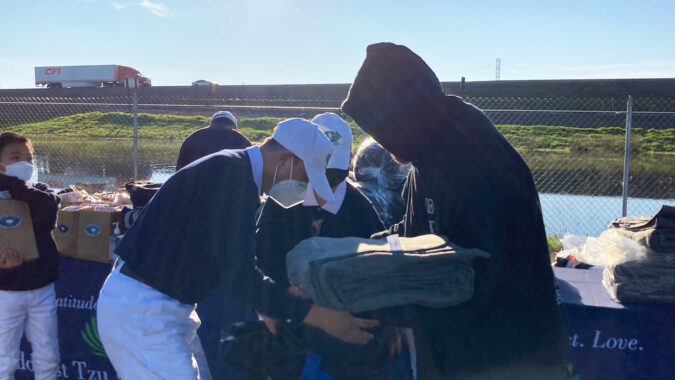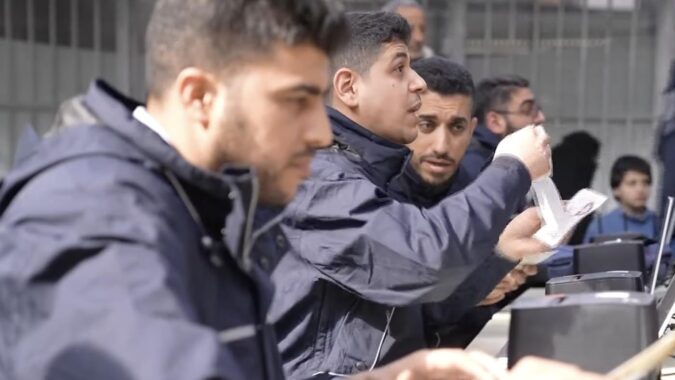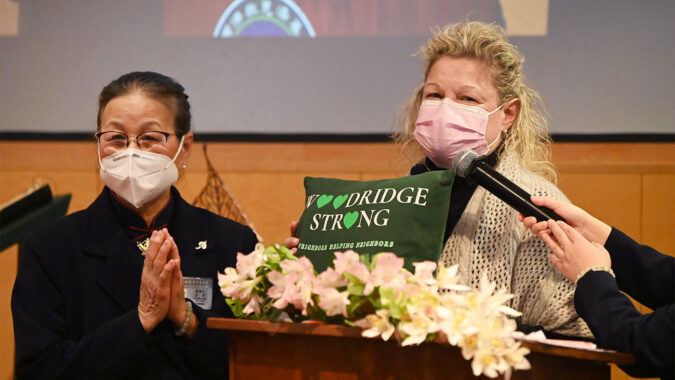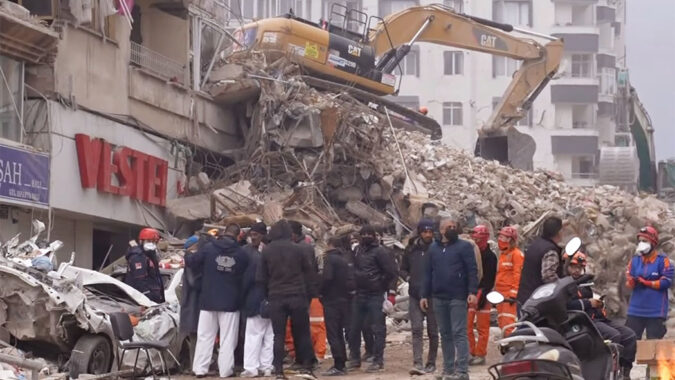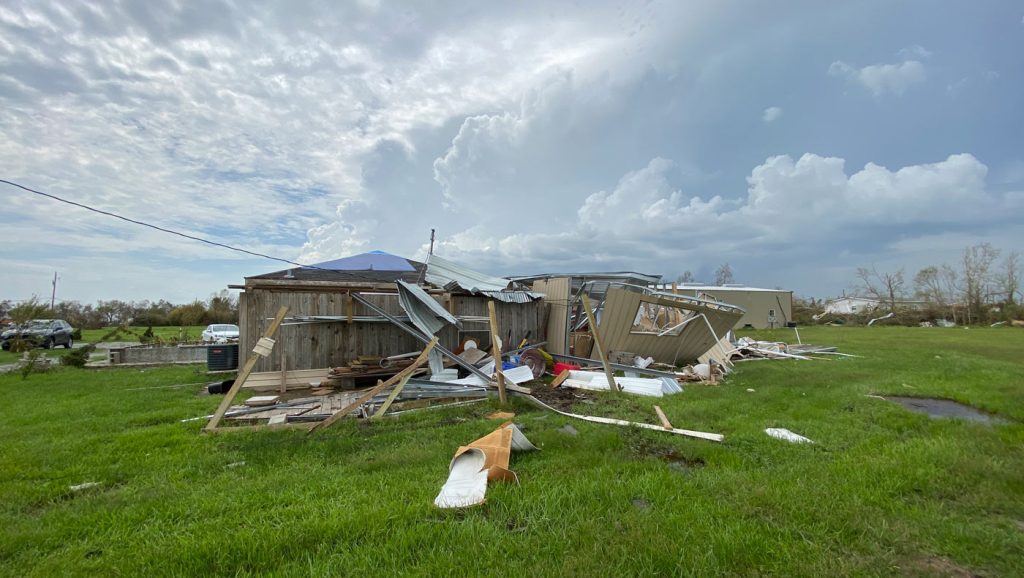
Written by Penny Liu
Edited by Dilber Shatursun
By September 5, 2020, it had been 10 days after Hurricane Laura made landfall on western Louisiana and eastern Texas. The Category 4 storm had cut off access to different cities across the region. But, when conditions were safe enough and roads were finally re-opened, five volunteers from Tzu Chi’s Southern Regional Office in Houston, Texas, ventured out to four cities to conduct damage assessment. Their purpose: to determine what the needs on the ground were and if and how Tzu Chi could help.
A couple of days before the journey, Tzu Chi Southern Region Administrative Assistant Scott Dyson and Tzu Chi volunteer Julienne Chi began reaching out to local contacts, familiar and new. Their goal was to connect with municipalities, first responders, and local volunteer groups to get an understanding of which areas required greater assistance. Knowing their preliminary journey would be short on time, the two worked together to craft the most efficient plan of action.
On the day of, Tzu Chi volunteers drove from Dickinson to Orange, Texas. There, they met with Pastor Nick Colbert and two city council members including Caroline Henningan and Paul Burch – the latter of which is the chairman of the local Salvation Army. Caroline and Paul took the Tzu Chi volunteers around the city to survey the areas suffering the most damage. In one brief stop to take photos, volunteers encountered a dozen volunteers from a Galveston church group (Galveston Baptist Association’s Disaster Response Team) that were there to help residents clean up their yards.
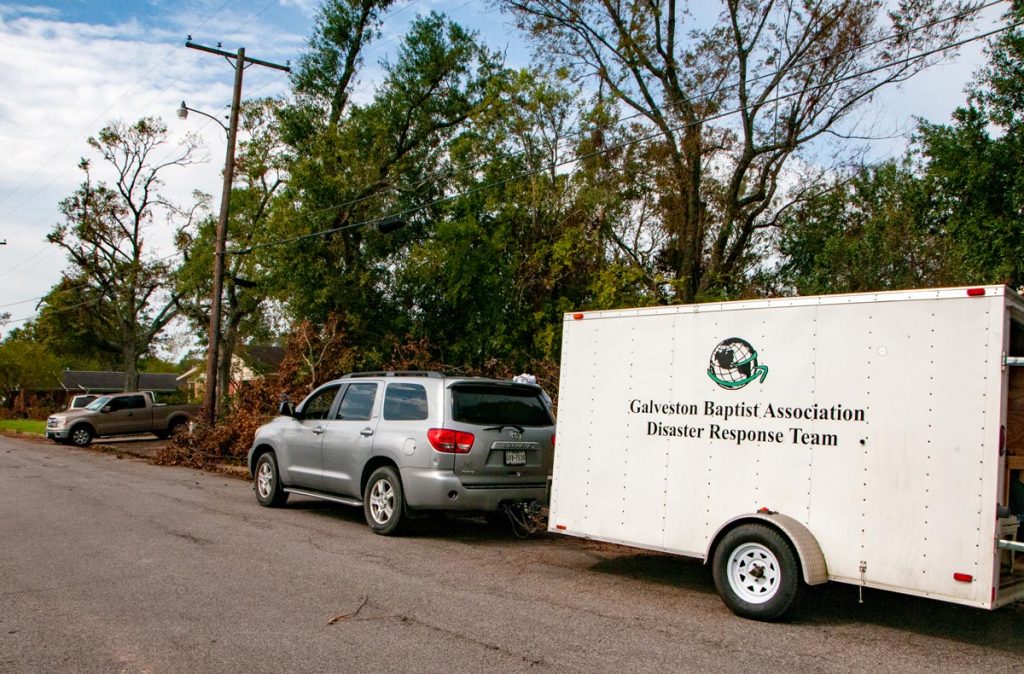
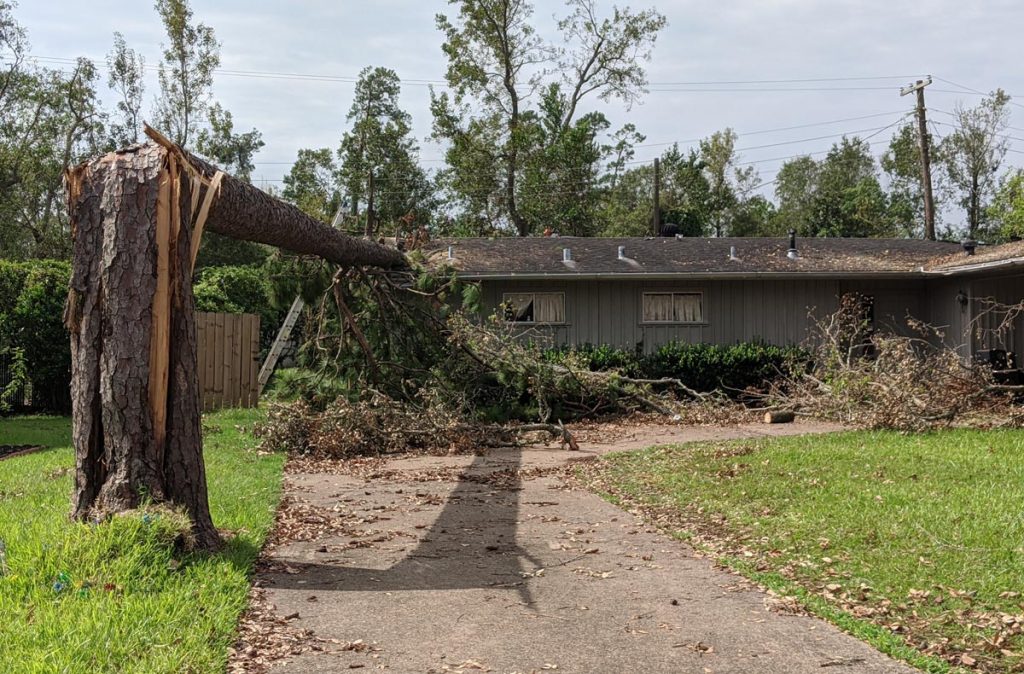
Orange residents indicated that damage to residences came mostly from fallen trees or blown off roofing tiles. Both left debris everywhere. Caroline and Paul also informed the volunteers that many low income residents have not returned after evacuating yet, after having the chance to be bussed to larger cities like San Antonio or Dallas. What’s more, many streets were without power and those who had evacuated couldn’t – or wouldn’t – return without it being restored.
Mindful that this was all happening in the midst of a pandemic, we had brought personal protective equipment, or PPE, with us. We donated 2,000 surgical masks to Paul Burch, to be distributed by the Salvation Army of Orange County, Texas.
Next, Deweyville resident Brandon Price and his wife met our team in Orange TX and escorted us to Deweyville in Newton County. About 15 minutes north of Orange, Deweyville is a very small town with about 1,000 residents and 325 individual families. Approximately 50-60% have no home insurance. According to the Deweyville Volunteer Fire Department Chief Mark McCall, Newton County is among the 15% poorest counties in all of Texas. Most residents, he explained, are on fixed income and many are elderly; about half have no transportation.
Chief McCall was very happy to see our group of volunteers. He said that Deweyville had suffered several major disasters since 2016, when the Sabine River flooded; then with Hurricane Harvey in 2017; then with Tropical Storm Imelda in 2019; then with this year’s Hurricane Laura. Brandon told us that one of his relatives had just finished repairing her home from damage incurred by Harvey – but Laura knocked down a tree that went right through her daughter’s bedroom.
Because the town is so small, the focus of relief resources has historically gone to bigger cities, often leaving Deweyville left to fend for itself. For many residents, their most urgent need at the moment is tarp to cover their roofs. Even though the town has suffered damages from nearly 100 MPH winds during Hurricane Laura, it was unfortunately not included as a federal disaster area. Therefore, it is ineligible to receive further assistance from FEMA.
What’s more, many homes are still without power and drinkable tap water. While FEMA had provided some bottled water and food for residents to pickup at the firehouse, these resources will run out in the next few days. Seeing the threat of food insecurity in Deweyville, my teammates and I immediately carried out 14 boxes of Jing Si instant rice to add to the firehouse’s makeshift pantry. Chief McCall was so touched that he rushed in to grab a fire department t-shirt to give as a gift to us.
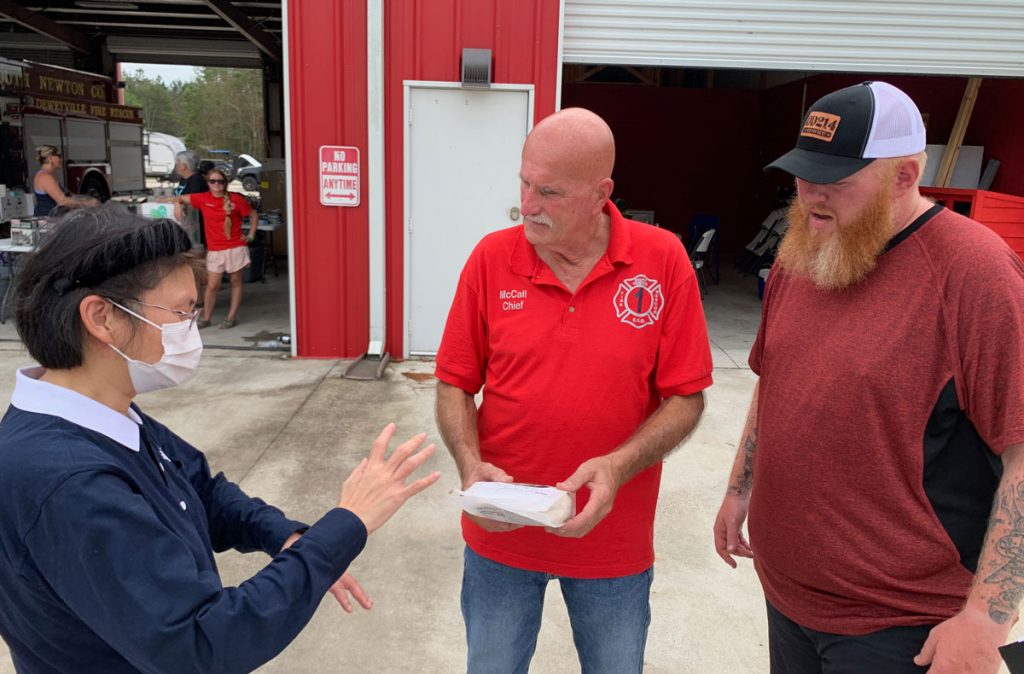
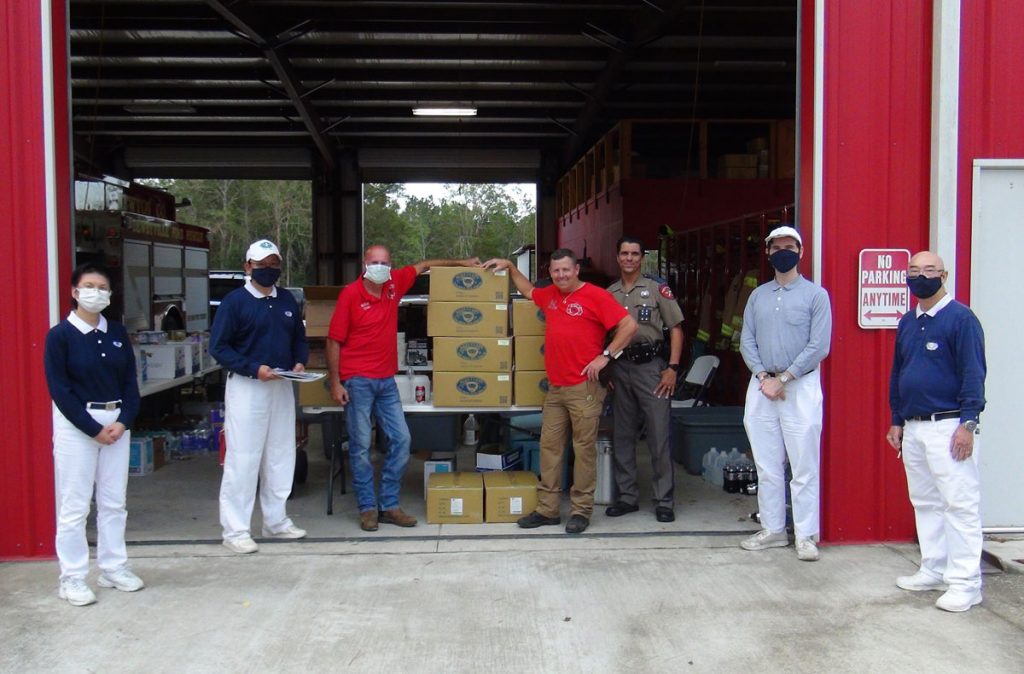
After leaving Deweyville, we continued our eastward journey into Louisiana. We traveled closer to the epicenter of the storm and saw more and more fallen trees, power poles, and even a string of train cars blown over to their sides. The sights were havoc.
We arrived at the Da Bao Temple in Lake Charles, LA. Minh Vo, a member of the Buddhist temple, had contacted the American Red Cross requesting assistance. They referred him to Tzu Chi’s Southern Region. Several temple members living nearby already awaited our arrival with the resident Master. After a brief introduction, Minh and others took us around the Temple to show us the damage; the kitchen and bathroom were totally destroyed, the prayer room windows were broken, and the roof had leaked.
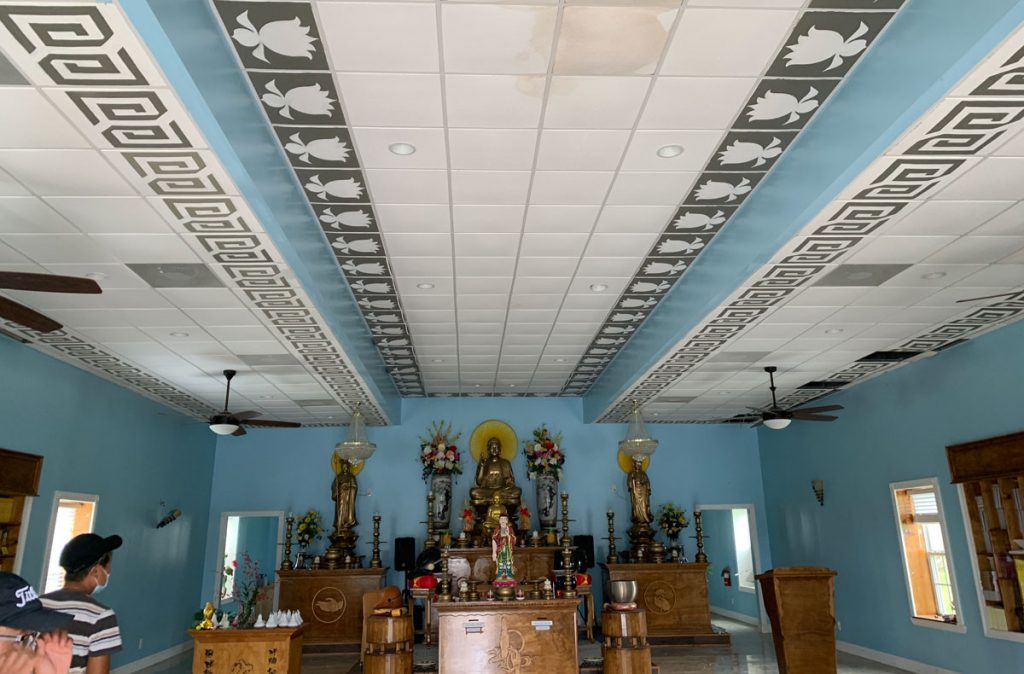
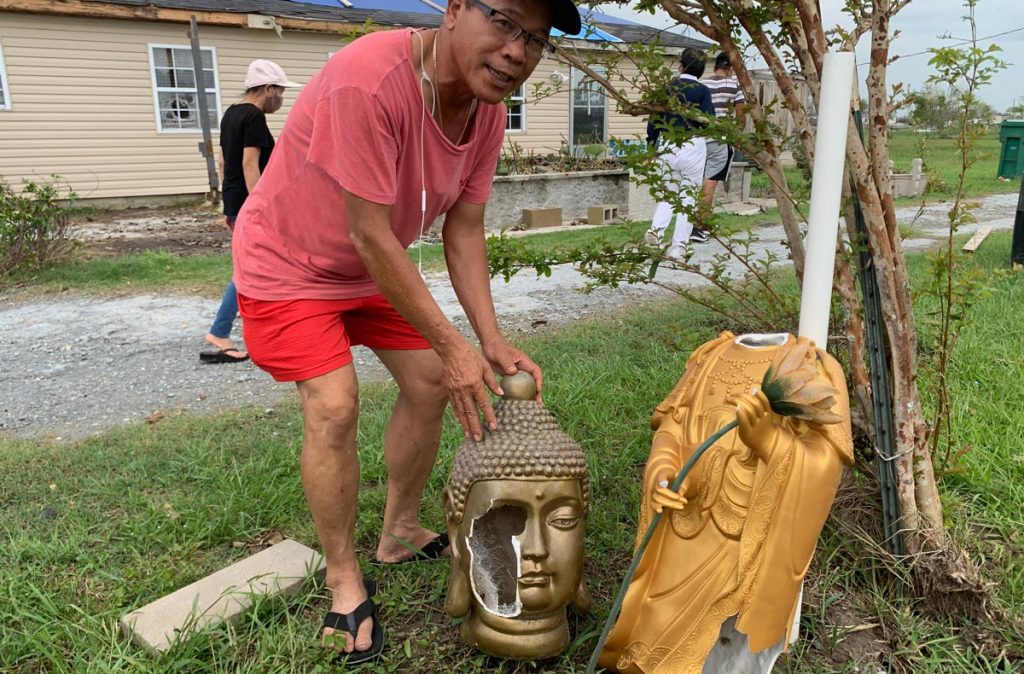
They informed us that while most of the Temple members have home insurance, the institution itself was pretty new and could not yet afford insurance. They also had no power nor water and were running off a generator. The local electrical company estimated that it would take at least 3 weeks to a month to restore electricity.
In the meantime, both FEMA and the American Red Cross have been providing local residents with enough drinking water and food. Still, nearly all the houses we saw in and around Lake Charles have suffered damage. Minh expressed his worry about repair efforts. Even if they have money to proceed, he explained, there would be a shortage of materials and reliable construction crews for the next six months or so.
After leaving Lake Charles, we traveled north to the town of De Quincy in the Calcasieu Parish. There, we met Debra White, whose husband is a County Commissioner in Newton County, TX. Debra was born in De Quincy and was a good friend of the mayor. She was passionate about helping the people in De Quincy since it is also a place that is often ignored. The population is about 3,500 people, most who are currently without power and have limited water services.
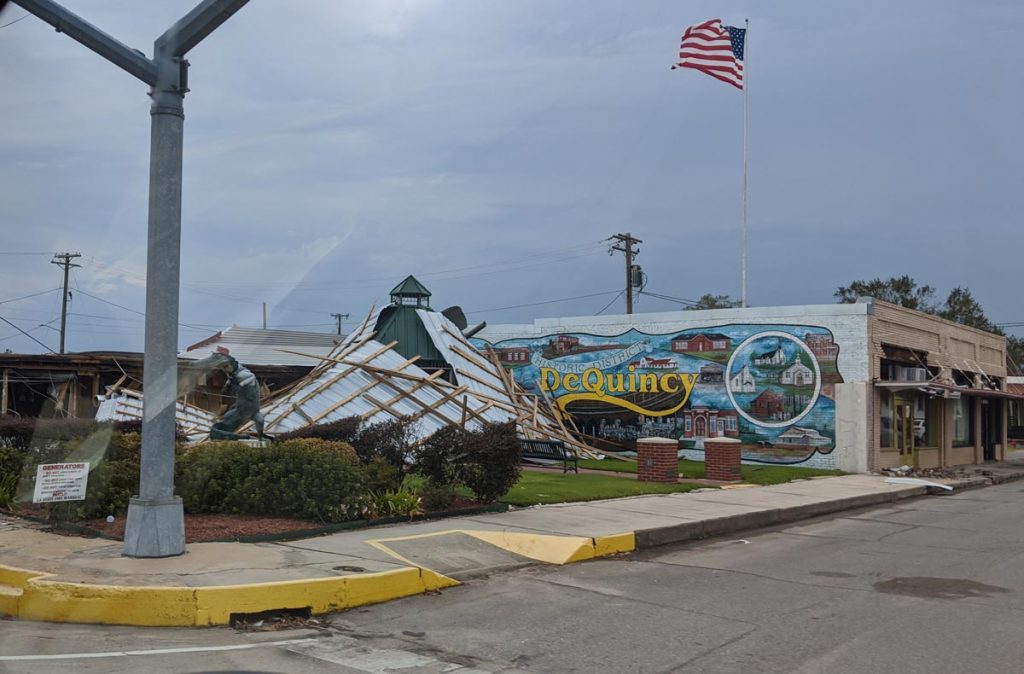
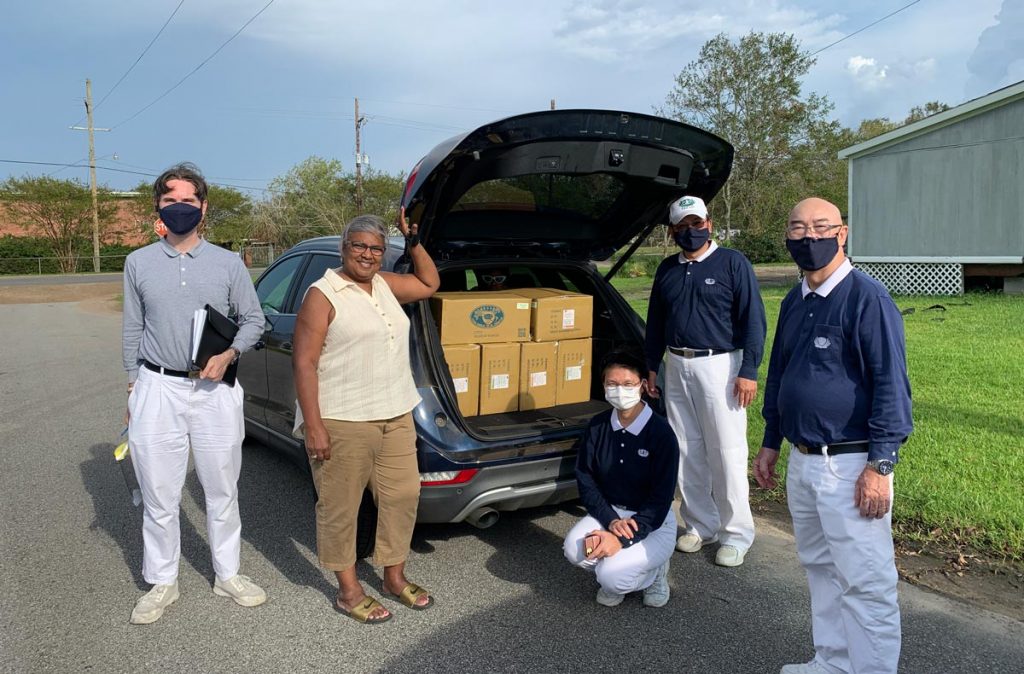
During a brief phone call with the mayor in between his meetings, he told our Tzu Chi volunteers that an estimated 98% of properties suffered damage. Debra also pointed out that many residents are renters – not homeowners – so they have no insurance. She shared that many had no means of transportation, so even if power does not get restored within the next month, they will have no choice but to remain home and wait it out, an option very few can afford.
This area has been declared part of the federal disaster area, so we estimated that it should be able to receive some federal assistance. But, before we left, we gave Debra 6 boxes of Jing Si instant rice. She would pass it on to the mayor of De Quincy who would distribute it to local residents.
Overall, Louisiana has suffered great damage. Large areas still have no power. We could see vehicles from utility companies all over the state trying to restore power. At Lake Charles, we made a brief pit stop at the Waffle House. The manager told us that they opened the restaurant the day after the Hurricane passed. Using a leased generator, they provided free meals to FEMA staff and half-priced meals to local residents. No power in the town meant traffic signals were nonfunctional, too – causing a few minor congestions on our way out.
On our way back, we passed through the Deweyville firehouse again, donating all our remaining instant rice to them. We also met a couple of Texas State Troopers; one of them remembered our organization from Hurricane Harvey. At the time, he patrolled Port Arthur, where we had held a major distribution. He told us he also went to Buu Mon Temple to attend a meditation class. Upon our departure, he thanked us volunteers for offering help again to those who are in need.
As we normally do during disaster relief operations, we evaluate information and data from various sources to decide which locations need our greatest attention. With the pandemic complicating the safety of traditional relief efforts, we will be strategizing and discussing how we may safely provide aid to reduce public health risks for both Tzu Chi volunteers and our care recipients.

